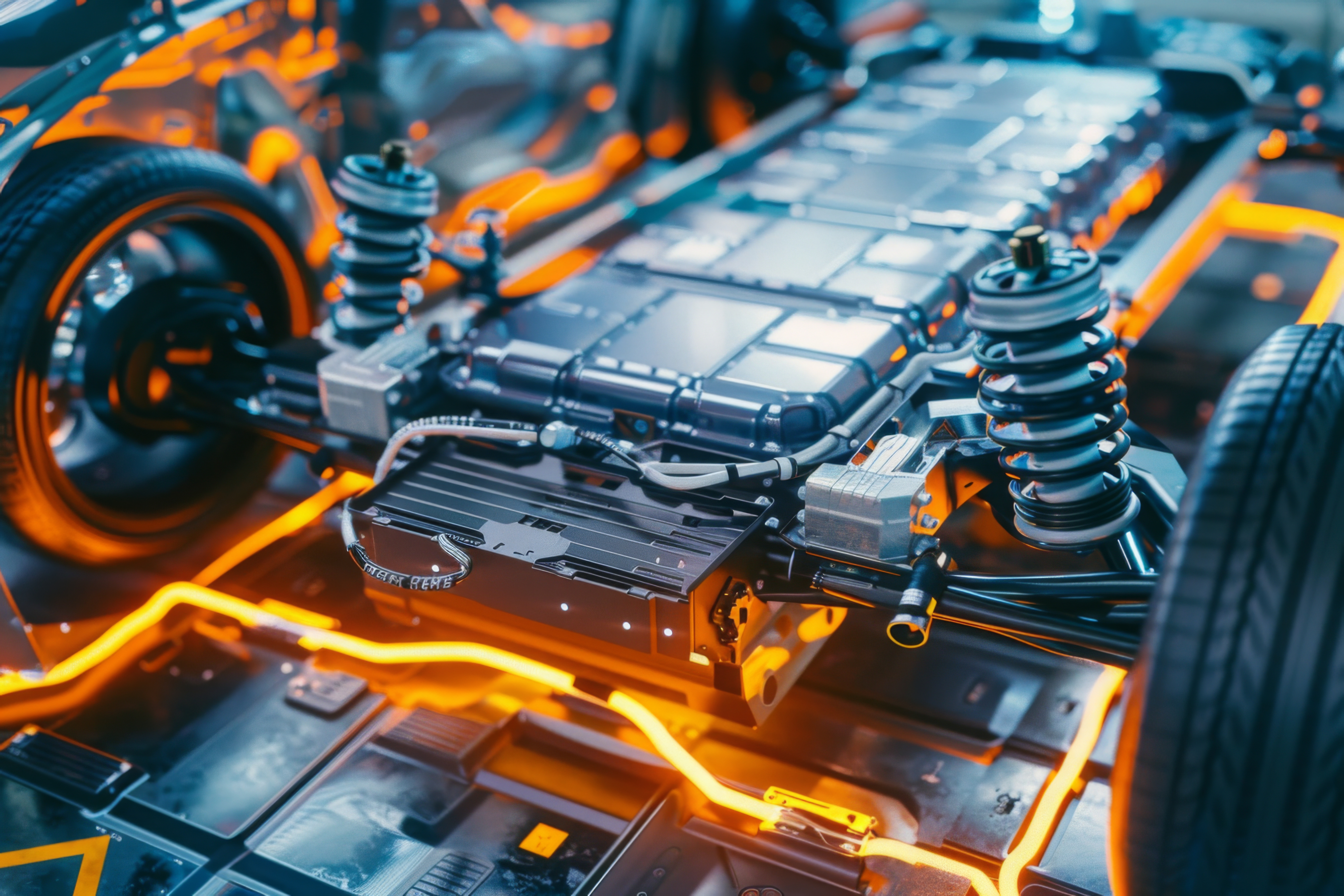Batteries are the heartbeat of the electric vehicle revolution, with lithium-ion packs accounting for around 40% of an EV’s total cost. Thankfully, as battery prices plummet, they bring the promise of making EVs as affordable as their internal combustion engine counterparts.
Trends in battery price reduction
Not so long ago, the cost of batteries comprised a significant portion of an electric vehicle’s price, posing a barrier to consumer adoption and market growth. However, a transformative shift has been underway, bringing forth a steady decline in EV battery prices, much to the advantage of both manufacturers and consumers.
Manufacturers are leveraging smarter, more streamlined methods that minimize waste and scale up production. Automated assembly lines, precise quality control measures and advancements in the speed and accuracy of manufacturing have all played a role in lowering the cost per battery unit.
By exploring alternative materials that are more abundant and less expensive, researchers and engineers have also unlocked pathways to cheaper battery production.
A substantial driver for lower prices is the surge in production capacity. As more and more companies invest in battery manufacturing, the economies of scale come into play. Large-scale production facilities, often referred to as “gigafactories,” have been instrumental in diminishing costs.
Battery pack design innovations
Modular battery pack designs
These innovative battery packs are composed of smaller, easily replaceable units that can be independently switched out, not unlike the keys on a modular keyboard. This modularity extends the life of the battery by allowing individual cells or modules to be replaced rather than discarding the entire battery pack.
Standardized battery packs
Standardized battery packs are designed to uniform specifications, which means they can fit into a variety of vehicle models and makes. With a homogeneous design, recycling plants can process large volumes of battery packs in a more efficient manner.
Breakthroughs in energy density and efficiency
A battery with superior energy density can store more power in the same volume, directly translating into longer drives on a single charge and a reduced overall vehicle weight, enhancing performance and efficiency.
Recent scientific breakthroughs have unveiled materials and structural designs that offer remarkable improvements in energy density.
Researchers have also targeted the electrolyte component of batteries, where novel solid-state electrolytes are being optimized to facilitate faster lithium-ion movement while mitigating risks like electrolyte leakage and volatility, which are challenges with traditional liquid electrolytes.
The current and next generation of battery technologies
Lithium-ion vs. emergent technologies
At the heart of the electric vehicle revolution lies the humble battery, which has undergone immense development over recent years. Dominating the current field is the lithium-ion (Li-ion) battery, known for its reliability, cost-effectiveness and energy density. Li-ion batteries have been instrumental in driving the initial surge in EV adoption, providing a balance between performance and affordability.
However, the EV market’s expansion has exposed limitations in Li-ion technology, including concerns over the sustainability of materials, safety and the quest for a longer range. These challenges have spurred the pursuit of next-generation battery technologies, notably solid-state and lithium-sulfur batteries, which promise to elevate the capabilities of EVs to a new pinnacle. However, these technologies may take a few more years to reach the mass production stage.
Projection of high energy density on EV range
 How high energy density refines EV range
How high energy density refines EV range
As we find ourselves at the crossroads of innovation, high energy density in batteries paves the way to revolutionize the electric vehicle landscape. The capacity of a battery to store more energy within its confines—the crux of energy density—directly amplifies the distance an EV can cruise before needing a recharge.
The intensive drive for research in the realm of high energy density has already displayed its prowess with lithium-ion batteries breaking records of more than 700 Wh/kg energy density. To put this in perspective, such a leap heralds the dawn of EVs that could theoretically extend their embrace of the tarmac up to a staggering 500 miles per charge. This stands in stark contrast to earlier EV models that cautiously navigated ranges barely breaching the 200-mile barrier.
The trickle-down effects of advances in high energy density go further, enabling a reduction in the number of cells and, consequently, the overall battery pack size needed to deliver comparable power.
Future trends in battery technology and industry focus
The relentless pursuit of innovation within the battery technology industry has unlocked numerous possibilities and has outlined several trends that are steering the future of electric vehicles. As the demand for EVs persists, manufacturers and researchers are prioritizing investments in research and development to tackle two crucial aspects that could radically reshape the EV market: improved charging times and heightened safety measures.
One of the most consequential industry focal points is the reduction of charging times to parallel the time it takes to refuel a conventional car. The introduction of ultra-fast charging batteries has sparked significant excitement, promising to dispense with long waiting periods at charging stations. Innovations such as battery chemistries with silicon and lithium-metal anodes have surfaced, offering not only faster charging capabilities but also higher energy density, reducing the range anxiety associated with EVs. As these advancements come to fruition, the convenience factor can be expected to surge, thus mainstreaming electrified transportation.
/filters:quality(70)/EV-battery-packs.jpeg)
/filters:quality(70)/bumper-logo-icon.png)

/filters:quality(100)/tesla.jpeg)
/filters:quality(100)/charging-ev.jpeg)
/filters:quality(100)/F150-generations.png)
/filters:quality(100)/2021-01-15-Buying-a-Used-Car-Checklist-CDN.png)